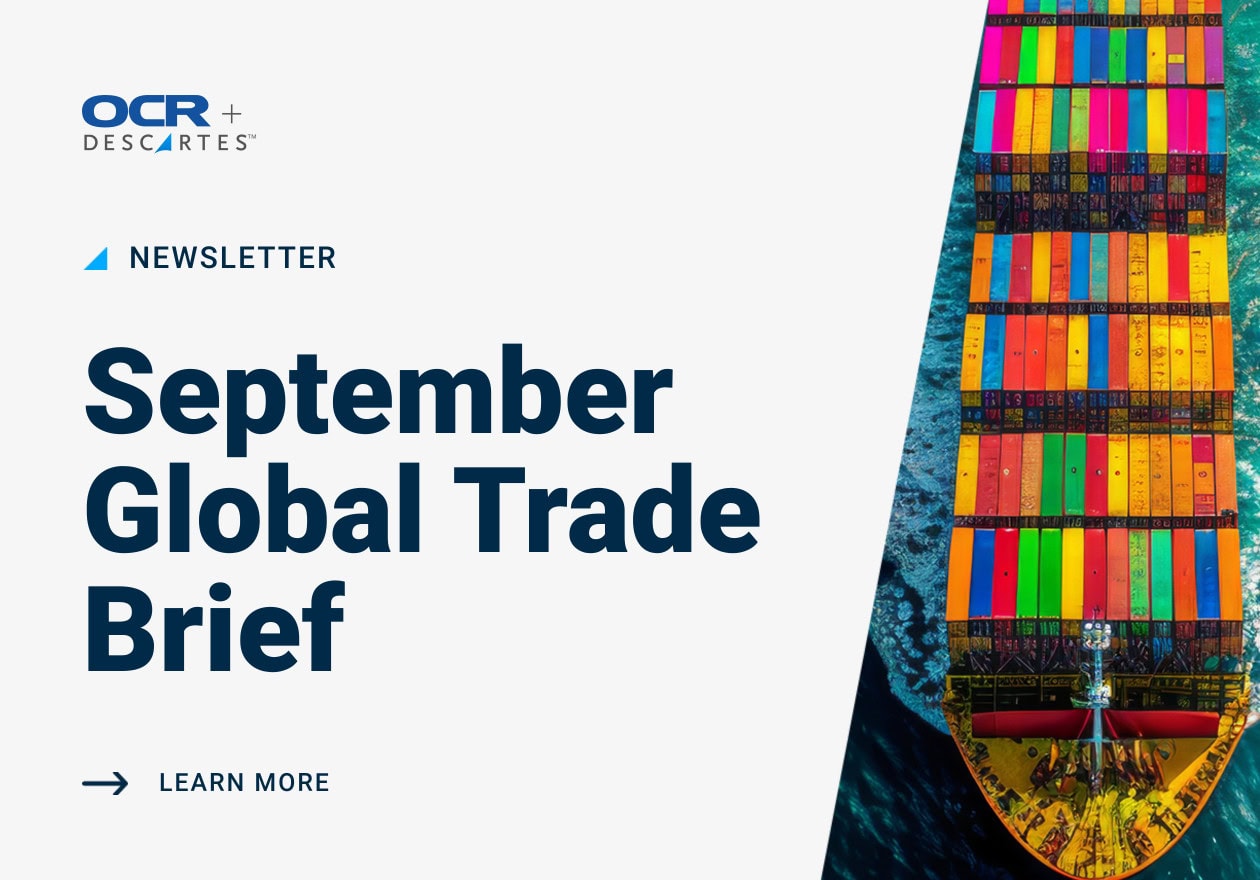Section 232 Additional Duties on Russian Aluminum
On February 24, 2023, the President issued Proclamation 10522 on Adjusting Imports of Aluminum into the United States, announcing that aluminum articles that are the product of Russia, and derivative aluminum articles that are the product of Russia shall be subject to a 200 percent ad valorem rate of duty with respect to goods entered for consumption, or withdrawn from warehouse for consumption, on or after 12:01 a.m. eastern standard time on March 10, 2023.
Also, imports of aluminum or derivative aluminum articles where any amount of primary aluminum used in the manufacture of the articles is smelted in Russia, or the articles are cast in Russia, will be subject to a 200 percent ad valorem rate of duty with respect to goods entered for consumption, or withdrawn from warehouse for consumption, on or after 12:01 a.m. eastern daylight time on April 10, 2023.
Source: https://content.govdelivery.com/bulletins/gd/USDHSCBP-34d71ae?wgt_ref=USDHSCBP_WIDGET_2
UK Parliament Approves Trade Agreement With Australia
The Australia-UK FTA is a historic agreement, representing the UK’s first new trade deal signed since Brexit. It will reset access to the UK market for Australian exporters. The agreement will remove tariffs on over 99 per cent of the $9.2 billion Australian goods exported to the UK annually. In addition, it will see Australian professionals gain access to the UK jobs market on par with EU nationals, with more opportunities for intra-company transfers and for working holidaymakers. The agreement also includes a range of commitments that will advance the commercial interests of Aboriginal and Torres Strait Islanders, including providing for royalties to be paid to First Nations artists where their artworks are resold in the UK. Importantly, the Australian Government’s Indigenous Procurement Policy will continue to benefit Indigenous-owned businesses.
The Australia-UK FTA will enter into force after UK processes are complete and Australia and the UK exchange diplomatic notes identifying a commencement date.
Agreement Reached by the UK and EU Regarding the Windsor Framework
Highlights:
- A new UK internal market system (or green lane) for internal trade. This will mean that goods being sold in Northern Ireland will be freed of unnecessary paperwork, checks, and duties, using only ordinary commercial information rather than customs processes or complex certification requirements for agrifood.
- In contrast, trade moving into the EU will be subject to normal third-country processes and requirements.
- for parcels sent to friends and family in Northern Ireland, the process will be exactly as it is today, with no requirements on either the sender or recipient of any kind. For crucial e-commerce movements from businesses to consumers, the agreement scraps the requirements for customs declarations, pre-notification, presentation of goods to customs authorities, and the range of burdensome requirements that applied under the old Protocol.
- All traders moving agrifood goods for the final consumer in Northern Ireland can become members of the UK-run scheme – including retailers, wholesalers, caterers, and those providing food to public institutions like schools and hospitals. The threat of up to 500 certificates for a single truck will be replaced with a single document confirming that goods are staying in Northern Ireland and are moved in line with the terms of our internal market scheme. That document will be electronically and remotely processed, without being physically checked. There will be no need for official veterinarians or plant inspectors on site in supermarket distribution centers or costly ‘attestation’ supporting documentation for products, with proportionate arrangements for competent authority oversight based on risk and intelligence.
Source: https://www.gov.uk/government/publications/the-windsor-framework
Cyber Power Systems (USA) Inc v. United States, Slip-Op. 23-24 (February 27, 2023)
Facts:
Plaintiff Cyber Power Systems (USA) Inc. (“Cyber Power”) commenced this action contesting a denied protest regarding the country of origin marking of five models of uninterruptible power supplies (“UPS”) and one model of surge voltage protectors (“SVP”). Upon entry of the subject merchandise, which Plaintiff had marked as “Made in the Philippines,” U.S. Customs and Border Protection (“Customs”) determined that the country of origin for the five UPSs and one SVP was China and excluded their entry when Cyber Power refused to change its markings. Cyber Power contended before Customs, and now before the court, that its operations in the Philippines, conducted by Cyber Power Systems Manufacturing, Inc. (“Cyber Power Philippines”), resulted in a “substantial transformation” of the merchandise into Philippine origin, having a name, character, and use different from each device’s Chinese components.
Law:
The implementing regulation, 19 C.F.R. § 134.1(b), defines the term “country of origin” as “the country of manufacture, production, or growth of any article of foreign origin entering the United States.” Section 134.1(b) explains that “[f]urther work or material added to an article in another country must effect a substantial transformation in order to render such other country the ‘country of origin’ within the meaning of this part.” 19 C.F.R. § 134.1(b) (emphasis added).
Analysis:
A finding of substantial transformation frequently rests on multiple factors because a change in character often results in a change in use, and a change in character or use generally necessitates a change in name.
Decision:
The court holds that Cyber Power’s operations in the Philippines resulted in a “new and different article”: the CP600LCDa. Indeed, the CP600LCDa’s Philippine manufacture satisfies all three prongs of the substantial transformation test: a change in name (from a set of PCBA and UPS component parts to the finished, functioning UPS Model No. CP600LCDa), a change in character (from component parts not yet capable of being electronically programmed to a device capable of performing a number of intelligent functions), and a change in use (from component parts to a device geared towards a specifically identified purpose: protecting against power outages).
The court held that Plaintiff failed to prove, by a preponderance of the evidence, that five of the six subject models are products of the Philippines. That the devices left the Philippines with new names cannot suffice to prove that “new and different article[s] emerged” from the operations at the Cyber Power Philippines factory. For the foregoing reasons, the court finds that the country of origin for UPS Model No. CP600LCDa is the Philippines, and the country of origin for the remaining five models of the subject merchandise is China.
Source: https://www.cit.uscourts.gov/sites/cit/files/23-24.pdf
Additions and Revisions of Entities to the Entity List
The Bureau of Industry and Security is amending the Export Administration Regulations (EAR) by adding 37 entities under 38 entries to the Entity List. These entities are listed under the destinations of Belarus (1), Burma (3), the People’s Republic of China (China) (28), Pakistan (4), Russia (1), and Taiwan (1). Some entities are added under multiple entries, accounting for the difference in the totals. This final rule also modifies 10 existing entries on the Entity List under the destination of China. The final rule—effective from, March 2, 2023
Source: https://public-inspection.federalregister.gov/2023-04558.pdf



